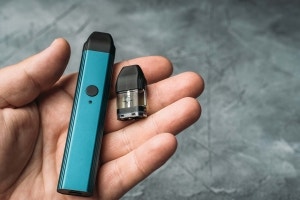Cannabis Oil Vs CBD Oil: Are They the Same?
And where does hemp oil fit with them?

In the whirlwind of wellness trends, CBD has soared like a comet through the stratosphere of holistic health. From coffee to cosmetics, CBD-infused products have bloomed like wildflowers in various market niches. However, a newcomer to the scene is vying for attention and shelf space.
Enter cannabis oil, a close cousin to CBD with a significant divergence - THC. But what's the real deal? Are cannabis oil and CBD oil akin to chalk and cheese, or do they share more in common than not? How do they stack up to the often-confused hemp oil? In this brief guide, we unpack the differences and shed some light on the leafy matters that are cannabis oil, CBD oil, and hemp oil.
What Exactly is Cannabis Oil?
Cannabis oil is as it sounds, an oil infused with cannabis extract sometimes referred to as marijuana oil or THC oil. This means it contains a high amount of THC which is not typically in CBD oil (or at least legal ones in the UK, EU and US). It also contains many of the beneficial terpenes you can find from the plant and other cannabinoids.
THC, or Tetrahydrocannabinol, is the principal psychoactive component found in the cannabis plant. It's what gives users the characteristic "high" associated with marijuana consumption. Acting upon specific receptors in the brain, THC can alter mood, affect perception, and influence cognitive functions to varying degrees depending on the amount consumed.
The CBD Oil That's Taking the Shelves by Storm
CBD oil's rise to fame is somewhat less complicated. It contains cannabidiol, a non-psychoactive compound found in the cannabis plant known for its potential benefits. When extracted and refined, CBD oil is available in various forms - full-spectrum, broad-spectrum, and isolate - each offering different benefits.
Full-spectrum CBD: This type retains all the natural compounds found in the plant, including trace amounts of THC, which synergize to create what's called the entourage effect.
Broad-spectrum CBD: It includes several cannabis plant compounds, but unlike full-spectrum, it does not contain THC.
CBD isolate: This is the purest form of CBD, isolated from other compounds in the plant. It's often used for CBD vapes and other products where purity is key. Some argue this version is less effective than broad-spectrum due to the lack of other helpful cannabinoids or terpenes.
We understand the importance of purity which is why our products use CBD isolate, but to give you all the benefits possible, we re-add the lost terpenes to the CBD. With CBD oil, the focus is on the potential health benefits without the high. This has made CBD accessible in places where cannabis oil might not be, due to the lack of THC.
The Not-Quite Cousin: Hemp Oil
You might often hear about hemp oil and CBD oil in the same breath. Hemp oil is derived from hemp seeds and does not contain significant levels of cannabinoids like CBD or THC. Instead, it's rich in healthy fats and other beneficial compounds such as amino acids.
Hemp oil benefits are more aligned with nutritional support. It's a great source of omega-3 and omega-6 fatty acids, along with vitamin E. In skincare, it's rumoured to be a light, non-comedogenic moisturiser. When it comes to dietary supplements, hemp oil is a staple for those seeking out a vegan, plant-based source of good fats.
While hemp oil is a significant player in the wellness market, particularly in non-cannabinoid-rich products, it's crucial to be aware that it's not the same as CBD oil in terms of benefits or uses. So if you are looking for a CBD product but its label reads hemp oil then you won't see the benefits you are hoping for!
Unravelling the Confusion
The confusion between these oils often stems from their close associations with the cannabis plant. It's also not aided by the interchangeable use of 'cannabis oil' and 'CBD oil' in everyday speech, marketing, and on the shelves. When seeking out a particular oil, it's vital to read labels, do your research, and understand the contents of what you're buying.
For health enthusiasts looking to explore the potential wellness benefits, legal CBD oils and supplements offer a promising avenue without the concerns associated with THC. It's essential to know the laws and regulations around cannabis products in your area to make informed decisions. Whether it's the quest for a calm clarity with CBD oil or the desire for an oil encompassing the full spectrum of cannabis compounds—THC included—cannabis oil, CBD oil, and hemp oil each hold their place in different health and wellness regimes.
The emergence of cannabis oil has definitely stirred the CBD world. But for many, the non-psychoactive promise of CBD oil will remain the chosen path. For those seeking a different experience or living in areas where its use is permitted, cannabis oil offers a fresh, albeit not universally accessible perspective. And although hemp oil is often the underdog in these conversations, it's carving out its own niche for those seeking purely nutritional benefits.
Currently, cannabis oil is not legally available in the UK due to its THC content.











